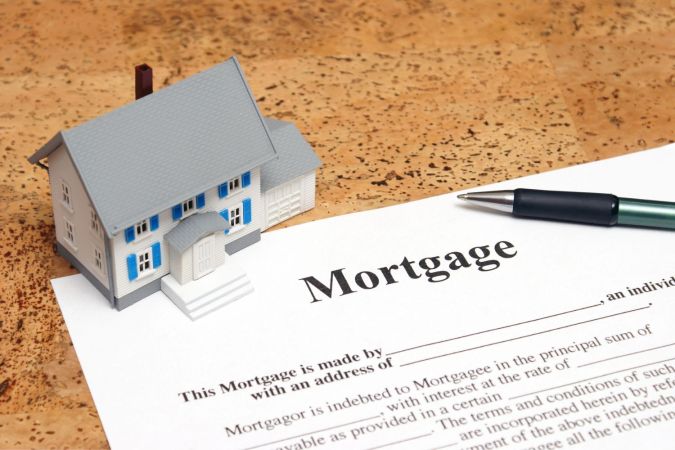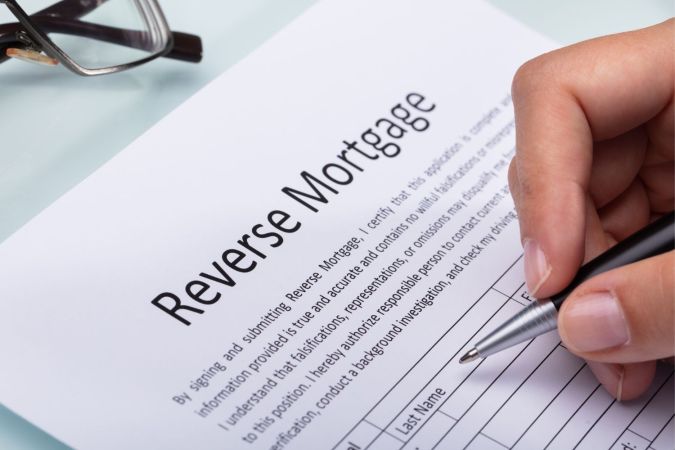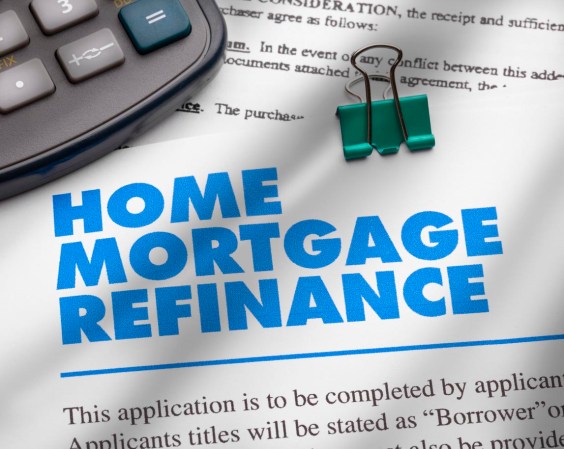We may earn revenue from the products available on this page and participate in affiliate programs. Learn More ›
Q: I’m ready to buy a house, but I keep hearing different opinions about whether now is a good time to buy because of high mortgage rates. Will mortgage rates go down in 2023?
A: The pandemic has wreaked havoc on the economy, and mortgage rates have not escaped the chaos. As fears of inflation rattled markets, the Federal Reserve responded by raising interest rates seven times in 2022, causing mortgage rates to climb. According to Freddie Mac, the average 30-year mortgage was 6.42 percent the week ending Dec. 29, 2022, more than double the rate in December 2021.
Now the big question many home buyers are asking is will mortgage rates go down in 2023?
Mortgage rate predictions vary among experts.
The answer depends on who you ask. Mortgage experts have differing opinions on the 2023 mortgage rate outlook and what it could mean for the real estate housing market this year.
Jeremy Schachter, a mortgage lender in Arizona, says he anticipates mortgage rates will trend down in 2023 since inflation seems to be slowing down.
“When inflation is high, rates go up, and when inflation eases, rates go down. The Federal Reserve is trying to ease inflation with rate hikes, and it’s slowly working,” Schachter says.
Ken Sisson, a real estate agent in California, also believes mortgage rates will improve from current levels and stay between 5.375 percent and 5.75 percent.
Other experts’ 2023 interest rate projections are not as optimistic.
Danielle Hale, chief economist at Realtor.com, predicts mortgage rates will see more increases in 2023.
“We expect them to climb further, possibly to a new high in 2023, before eventually beginning a gradual retreat as inflation abates more significantly and consistently,” Hale says.
Michael Branson, CEO of All Reverse Mortgage, Inc., agrees that mortgage rates will continue to rise until inflation significantly drops.
“As long as inflation sits well above 2 percent, interest rate hikes will continue to raise mortgage rates and hurt the housing market,” Branson says.
There are also experts like Armstead Jones, Real Estate Bees strategic real estate advisor, who believe the mortgage interest rate forecast will stay flat without any major increases or decreases until 2024.
RELATED: The State of Real Estate: A Look Back at What Changed in 2022

What affects mortgage rates?
When determining a mortgage rate, lenders consider multiple factors:
Economic factors
- Federal Reserve: While the Federal Reserve doesn’t set mortgage rates, it does set a benchmark interest rate (called the federal funds rate) that lending institutions use to guide the rates they charge customers.
- Inflation: High inflation rates often lead to higher mortgage rates, as the Fed raises the key interest rate in an attempt to cool inflation. A higher key rate means it’s more expensive for banks to borrow money, so they charge consumers more for mortgages.
- Housing market: When fewer homes are sold or available to be sold, the housing market declines. As a result, lenders might lower mortgage rates to incentivize people to buy more homes. A recent report from the National Association of Realtors shows that home sales have begun to slow down since mortgage rates began increasing in 2022.
Personal factors
- Applicant’s credit history and down payment: A history of good credit often will lead to lower mortgage rates for borrowers since the lender sees the buyers are likely to pay back the loan. A larger down payment can also help lower the mortgage rate.
- Type of mortgage: There are different types of loans for home buyers, such as a conventional, FHA, USDA, or VA loan. These mortgages may come with eligibility requirements, but could offer lower interest rates.
- Type of interest rate: There are also mortgage loans that offer different interest rate models. A fixed interest rate locks in a rate for a set amount of time, and an adjustment rate, also called an ARM (adjustable rate mortgage), starts out at one rate (usually lower), but can adjust up or down to the market rate once that initial rate expires.
What is a mortgage rate lock?
When looking for a mortgage, buyers may hear they need to lock in a rate. A rate lock freezes the interest rate on a mortgage for buyers after they’ve agreed to the loan terms, usually for a fee, and guarantees the rate offered for a set amount of time. There also may be a float down option, which allows buyers to get an even lower rate if interest rates go down after locking their rate.
If borrowers find a low interest rate on a mortgage, this could be a good option to guarantee that rate in case mortgage rates rise before the buyers get an offer accepted on a home.

Will 2023 be a good year to buy a house?
It’s difficult to predict what will happen with mortgage rates in 2023, but high or low mortgage rates have different advantages for buyers. High rates could mean less buying competition, and home prices tend to drop to make up for higher interest payments. Low rates can help buyers afford a higher-priced home since the interest portion of their monthly payments is lower.
While mortgage rates have gone up significantly in the last year, a 5 to 7 percent rate is still relatively low compared to the historical average for 30 year mortgages.
The best thing buyers can do to set themselves up to buy a home in 2023 is to control the factors of mortgage rates that they are able to, such as maintaining a good credit score and building up a down payment. Then, borrowers can shop around with different lenders to find a mortgage rate that works for them.









